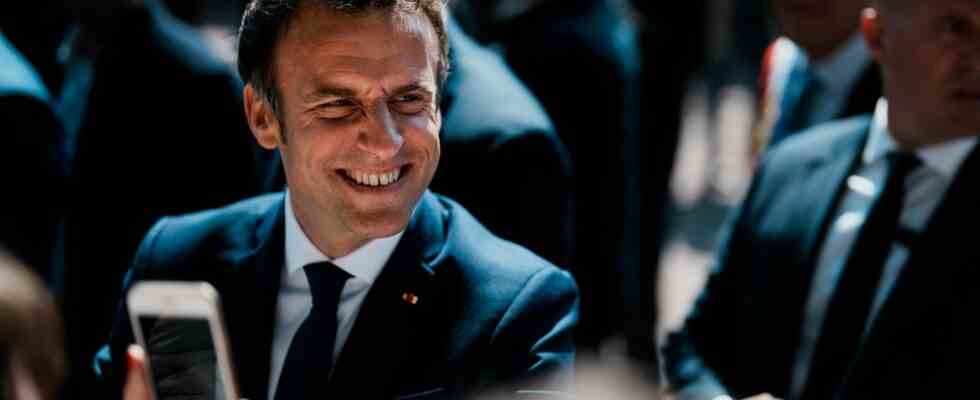portrait
Elected to prevent the worst: what is to come for Macron now
Emmanuel Macron, President of France, after casting his vote
© Thibault Camus/AP/DPA
Emmanuel Macron began his work at the head of France five years ago. The declared European reformed the country and shaped the international community. But not everyone is happy with him.
During his first term in office, he alienated and disappointed many. And yet Emmanuel Macron managed what no French Fifth Republic president before him has managed: secure his re-election while holding a governing majority. When the first projections were announced on Sunday evening, large parts of France and Europe breathed a sigh of relief.
Five years ago, Macron had come into office like a whirlwind – young, bright as a flash, breaking political camps, without ever having been elected to office. He was a high-flyer who always liked to defy convention and felt comfortable on any stage.
That was already the case when, as a teenager, he fell in love with the director of the theater group at his school. Against all odds, he married Brigitte, who was 24 years his senior, and they form an extraordinary couple to this day. Brigitte’s grandchildren proudly held up posters with the slogan “Daddy – President” in front of 30,000 supporters during an election campaign appearance.
Emmanuel Macron – the reformer
The then 39-year-old began his tenure in May 2017 in front of the Louvre to the sounds of the European anthem. In a way, the melody remained the background music of his mandate, in which Macron was committed to improved European cooperation.
The young president quickly conquered his place on the international stage, practiced hand-squeezing with then-US President Donald Trump and tried to impress Russian President Vladimir Putin with pomp and pomp at Versailles.
Domestically, Macron quickly pushed through reforms in the labor market, the railways and the universities. On the other hand, there was so much resistance to pension reform that the corona pandemic provided a welcome opportunity to put it on hold. The reforms are now bearing fruit and unemployment has fallen significantly. Thanks to government support based on Macron’s motto “Whatever the cost,” the economy is doing better than feared.
In terms of foreign policy, Macron has pushed Europe further than almost anyone else during this time. Even Chancellor Angela Merkel (CDU), who is allergic to joint debts, finally agreed to a generous Corona reconstruction fund.
“The President of the Rich”
The Ukraine war gave Macron’s call for a common defense an unexpectedly dramatic topicality. At times, Macron was the only Western politician who kept in touch with Putin and tried to negotiate with him for hours – but in vain.
In addition, the extensive failure of the military operation in Mali received little attention. His climate policy, which he initially advocated with passion, is also considered a flop. It sounded shocking to many Germans when Macron announced the construction of up to 14 new nuclear power plants.
One of Macron’s greatest weaknesses is certainly his image as a detached and know-it-all politician. The yellow vests had insulted him as the “president of the rich”. The protest movement against the high cost of living kept the country in suspense in 2018 with demonstrations and riots.
Macron hardly has a chance with the dissatisfied, the left behind, the losers from globalization. It also performs below average among young people. Macron kept making arrogant remarks, even if he then promised to improve each time.
Macron must unite the country
In personal contact, he is considered a good listener who can convince some skeptics with patience and expertise. A gift that certainly earned him a few more votes in the final sprint before the runoff.
For his second term, Macron has made major reforms, including the pension and school systems. The most important task, however, is likely to be to reunite the country. Many who voted for him in the runoff only did so to prevent the right-wing populist Marine Le Pen from winning.

